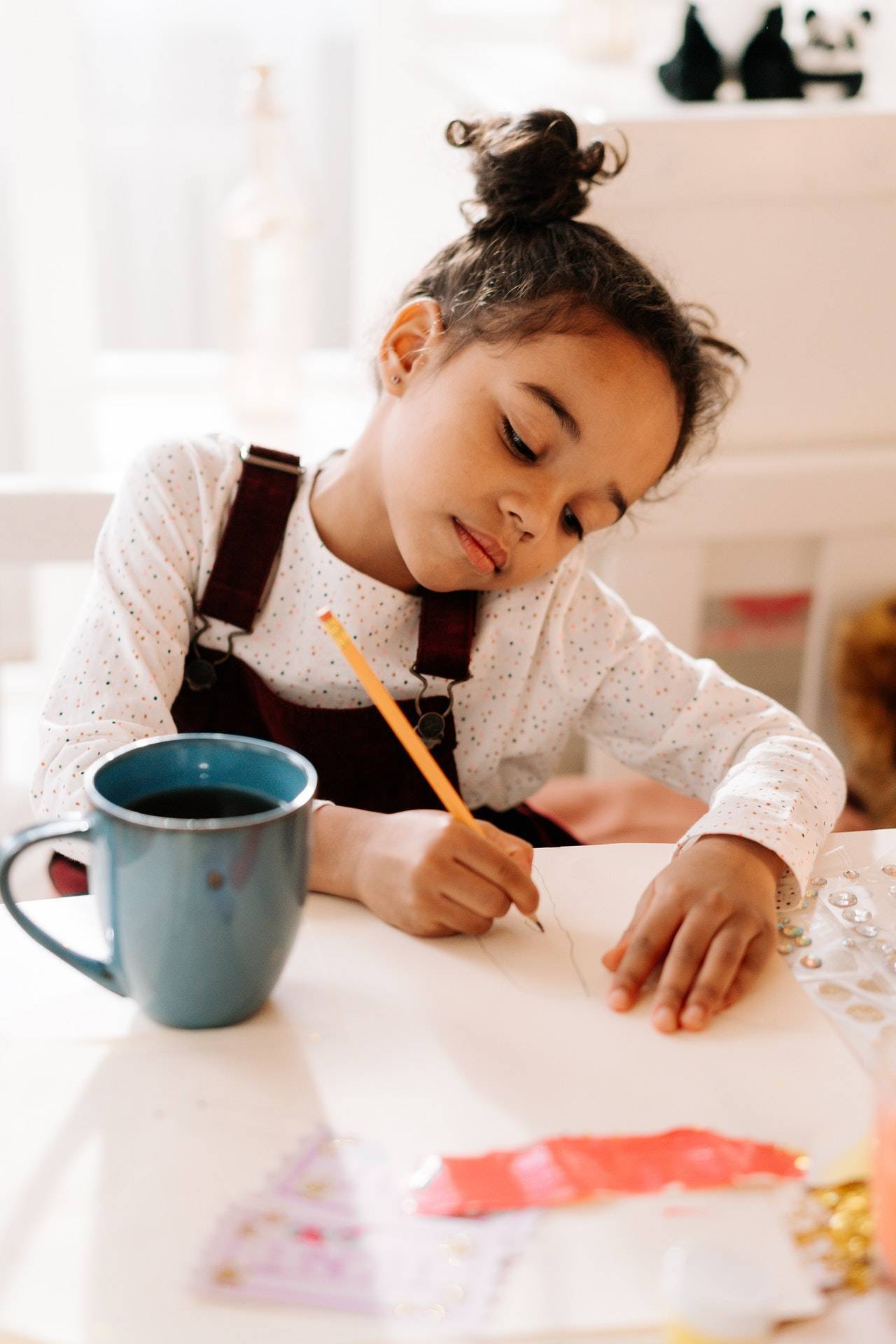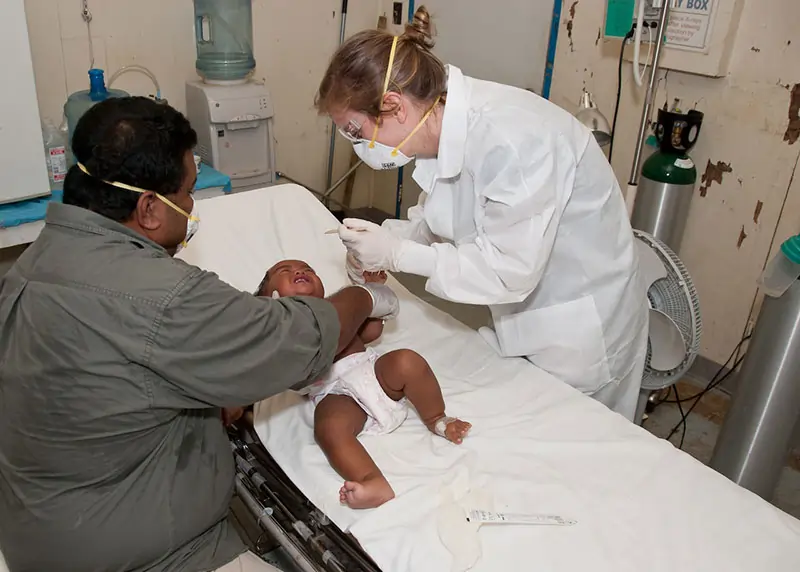Is It Safe for Kids to Drink Coffee?

Is your kid competing for that piping hot cup of coffee you placed on the breakfast table? Does he or she blitz to the front of the line whenever you go to your favorite coffee shop? With experts sounding the alarm bells over the increasing number of youngsters drinking caffeinated beverages, it makes sense to sit down and discuss is it safe for kids to drink coffee?
Is Coffee Safe for Kids?
In general, younger kids should not drink coffee, even if it has some milk in it (like latte, or cortado), because of its caffeine content. As kids grow older, they tend to have greater freedom in their choices.
You cannot expect a 3-year old toddler to choose coffee over milk because he knows caffeine’s health benefits. On the other hand, a 16-year old teen can already have different taste preferences, allowing him to choose specialty coffee over conventional espressos.
In other words, determining whether coffee is safe for kids or not depends on your understanding of the unique developmental milestones each child achieves at a certain age. A teenager will have a mindset that is almost similar to an adult, while a 9-year old kid may not.
What the Experts Say
There are no federal laws or guidelines that prohibit families from giving coffee to their youngsters. Even experts at the American Academy of Pediatrics can only discourage families from letting their young children drink coffee.
The American Academy of Child and Adolescent Psychiatry also does not recommend coffee to kids younger than 12 years. Kids between the ages of 12 and 18 can only drink a maximum of 100 mg of caffeine per day. The recommendation includes not only coffee but also other food items and drinks that contain caffeine.
Across the border, Canadians have a few guidelines for their coffee-drinking youngsters to follow. For example, preschool kids between the ages of four and six can drink no more than 45 mg of caffeine per day. Teenagers between 13 and 18 can consume not more than 100 mg per day. School-aged kids between 7 and 9 can only drink a maximum of 62.5 mg of caffeine every day.
Understanding Caffeine Effects on Kids
While experts may have varying opinions on how much coffee different kids’ age groups can consume in a day, they are unanimous in saying that caffeine is the ingredient to watch for.
What makes coffee unsafe for kids is its caffeine content. The higher the caffeine content, the more harm it can bring to a child. The kid’s age can also be an important factor. You see, caffeine exerts its dose-response effect more profoundly among children.
Children have a smaller body surface area than adults. For example, a 5-year old boy can have a BSA of 8.471 square feet, whereas a 30-year old male can have a BSA of 22.173 square feet.
The caffeine dose-response underscores the fact that kids only need a small amount of caffeine to produce maximum effects. Older kids and adults may not feel these effects unless they increase their caffeine consumption.
Some of the most common effects of caffeine on children include the following.
- Headache, especially several hours after drinking coffee
- Difficulty sleeping, which can lead to stunted growth
- Hyperactivity, irritability, or jumpiness secondary to caffeine’s stimulant effects
- Anxiety due to increased stimulation
- Tremors secondary to increased nervous system stimulation
Unfortunately, caffeine dose-response can amplify these effects and cause toxicity among children.
- Cardiac arrest secondary to potassium depletion due to caffeine diuretic effects
- Seizures because of electrolyte imbalance
- Dysfunction in the heart’s electrolyte channels
- Bone loss due to caffeine’s diuretic effects
- Cavities secondary to coffee’s acidic nature
- Chronic sleep problems
- Increased cortisol and other stress hormone levels
- Risk of addiction and substance abuse
Kids’ Caffeine Numbers Every Parent Should Know
You might think that we are blowing the issue out of proportion. It would help to know that 80 to 100 mg/L of caffeine can kill you. A young kid does not need this much caffeine to suffer the same fate. Here are other caffeine figures you should know.
- 75% of American kids from 3 to 18 years old now consume at least a cup of coffee daily
- 37% of American teens between the ages of 13 and 18 drinking coffee every day
- 31% of American teens aged 13 to 18 years drinking single-cup coffee daily
- 29% of 13 to 18-year old American teens drinking gourmet coffee every day
- 15% of American toddlers aged 1.5 to 3 years have an average daily coffee consumption of 4 ounces
- 2.5% of infants aged 1 to 1.5 years drink about 2 to 2.5 ounces of coffee per day
What Can You Do?
It is almost impossible to stop our kids from drinking coffee (even if it’s made from a cute pod coffee maker like these). They see it in TV commercials, on the internet, and their families and friends. Coffee-drinking is already a global pastime that it would be so uncool of kids not to partake in this activity.
As such, it would be best to help your kids to reduce their caffeine intake to within the respectable limits defined by leading health organizations.
Have a heart-to-heart conversation with your kids about coffee. Ask them what they know about this drink, including its benefits and side effects. Explain to your children caffeine’s potential negative effects and how these can impact their growth and development.
Encourage your kid to review caffeine-containing food products. These items may not be coffee, but they still contain caffeine.
Engage your kids in a family coffee-drinking tradition. You may want to replace their coffee with a suitable alternative, such as hot chocolate, herbal tea, or even steamed milk.
If your child has coffee cravings, giving him or her a cup of Joe once every week should not pose a considerable threat to your kid’s health and safety. It will also help to go easy on the caffeine content.
The Bottom Line
There is one definitive answer to the query, is it safe for kids to drink coffee? No, coffee does not have a place in your kid’s diet. The American Academy of Pediatrics issued this assertion after reviewing caffeine’s functionality and safety among children. In short, there are healthier and safer beverages that can help your kid stay focused and be energetic.
Author Bio: Charles Vallena is the founder and managing editor of Cuppabean.com, a coffee blog that helps people make better coffee by providing expert insights, recipes, and in-depth reviews on coffee makers.

